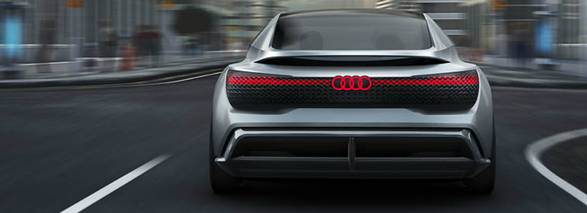
The Senseless Dream of the Electric Future


There are a lot of expectations placed on the electric car. It should not only make driving cheaper, but primarily provide clean air and relieve the burden of carbon dioxide and nitrogen oxides in the atmosphere. The auto industry and politics outdo each other in their targets, when and how many e-cars should be on the road.
Unfortunately, the electrical future is nothing more than pure nonsense. Many people are familiar with the parameters of the mobile future, but only a few say it as clearly as Jörg Wellnitz, a professor at the Ingolstadt University of Technology and also a professor in Melbourne. The Chair of Lightweight Design has meticulously dealt with all aspects of e-mobility. And the result: It can not and will never come as predicted by industry and politics. For him, the whole thing is a ruse, nothing else. And the customer? That’s not important.
"In many people's opinion, e-mobility is a great thing," says the eloquent professor, "but it makes no sense at all when all aspects of the topic are considered."
In fact, there is no aspect for which Wellnitz does not have sobering sets of numbers, can quote amazing investigations, or can simply negate with common sense. Of course, the focus is on the environmental topic. Car traffic is responsible for just 16 percent of climate-damaging carbon dioxide emissions. "A much larger environmental burden is caused by industrial farming and the agricultural monostructure," Wellnitz knows. Not to mention the large container ships on the oceans.
330 of these oversized container ships contribute to the emissions. And 15 of them alone produce as much pollutants as 750 million cars. Not to mention air traffic and cruise ships. And even if cars were the biggest contributor to carbon emissions, the e-car would be completely worthless for improving its environmental footprint.
"With the environmental impact created by building a single battery for the Tesla, for example, you could drive for eight years with an internal combustion engine," Wellnitz, who therefore reluctantly speaks of zero emissions in electric cars, pointing out that it is a fairy tale where the emissions produced in the production of the electricity the car requires to run cancels out the car not producing exhaust itself.
Because in his opinion, it is a matter of time until the power to recharge the batteries – the production of which is also anything but clean - is taxed just like gasoline or diesel. And then the cost of an electric car would be around 800 euros per month. And after eight years of these expenses and as many charging cycles of the battery, the whole heap will only be worth scrap value.
And we should believe that the auto industry does not know that?
"Everyone knows," says Jörg Wellnitz, "but it's not about the environment or the customers." Why manufacturers such as Audi, BMW and others currently invest billions in the new technology, is quite different. "On the one hand, billions of EU subsidies can be collected. In addition, e-cars protect the major manufacturers from fines for failing to meet European climate targets, as they reduce the types of vehicles on the market with alleged zero emission models.
"Of course, it’s also all about the brand image, a green cloak and technology control." Build the electric cars in the knowledge that they are anything but the automotive future. "To do it is cheaper than not to do it," an auto manager once told me, "it's useless, but it costs less."
And it truly is all about selling more cars.
1.6 billion vehicles are already available worldwide. 80 million are produced each year. That's just as many as children are born in this world. E-cars are not a substitute for combustion for the manufacturers, but an additional business to bring more cars into households, as second or third vehicles.
But this additional business is reaching its limits when it comes to the raw materials needed for the construction of rechargeable batteries, whose degradation in Chile (lithium) and Central Africa (cobalt) is not only extremely environmentally intolerable, it also goes hand in hand with unjustifiable child labor.
"If Audi would build the A4 in a large series purely electric, they would have to buy half of the world market of cobalt." At VW, according to Wellnitz, such a move has already been calculated. The conclusion was that, for the production of one large series of electric cars, 130 000 tons of cobalt would be needed. However, world production is currently only at 123,000 tons.
And most of the mining rights are in China, which, as Professor Fritz Indra says, who was also employed at Audi, could trigger a veritable economic war. "The Chinese have secured extensive mineral rights in Africa. In the Congo, for example, cobalt is scratched out of the ground, sometimes under the most brutal conditions," said Indra. "You also need graphite, manganese and lithium. For all these resources, we are completely dependent on China.
We have to buy all that from Chinese." Professor Jörg Wellnitz and Professor Fritz Indra are of the same opinion: the electric car, when looked at on the whole, provides absolutely no contribution to climate protection.
Wellnitz, for whom the diesel engine is still the cleanest and most eco-friendly option, makes another noteworthy point. Apart from the fact that a car battery provides about 100 watt-hours of power per kilogram of weight (gas 12 000 watt-hours and hydrogen, for Wellnitz the fuel of the future, 33 000 watt-hours), the climate goals could be achieved quite easily today.
If every driver fueled his tank only a quarter full and if the unneccesary requirements – at least in Bavaria – of a ballast of an average of 7.5 kilograms were dropped, then "we would already have the European climate targets in sight."


Gold price edges up as market awaits Fed minutes, Powell speech

Glencore trader who led ill-fated battery recycling push to exit

Emirates Global Aluminium unit to exit Guinea after mine seized

UBS lifts 2026 gold forecasts on US macro risks

Iron ore price dips on China blast furnace cuts, US trade restrictions

Roshel, Swebor partner to produce ballistic-grade steel in Canada

EverMetal launches US-based critical metals recycling platform

US hikes steel, aluminum tariffs on imported wind turbines, cranes, railcars

Afghanistan says China seeks its participation in Belt and Road Initiative

First Quantum drops plan to sell stakes in Zambia copper mines

Ivanhoe advances Kamoa dewatering plan, plans forecasts

Texas factory gives Chinese copper firm an edge in tariff war

Pan American locks in $2.1B takeover of MAG Silver

Iron ore prices hit one-week high after fatal incident halts Rio Tinto’s Simandou project

US adds copper, potash, silicon in critical minerals list shake-up

Barrick’s Reko Diq in line for $410M ADB backing

Gold price gains 1% as Powell gives dovish signal

Electra converts debt, launches $30M raise to jumpstart stalled cobalt refinery

Gold boom drives rising costs for Aussie producers

First Quantum drops plan to sell stakes in Zambia copper mines

Ivanhoe advances Kamoa dewatering plan, plans forecasts

Texas factory gives Chinese copper firm an edge in tariff war

Pan American locks in $2.1B takeover of MAG Silver

Iron ore prices hit one-week high after fatal incident halts Rio Tinto’s Simandou project

US adds copper, potash, silicon in critical minerals list shake-up

Barrick’s Reko Diq in line for $410M ADB backing

Gold price gains 1% as Powell gives dovish signal

Electra converts debt, launches $30M raise to jumpstart stalled cobalt refinery
















